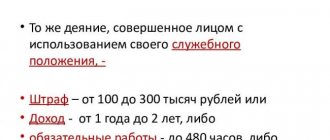Theft is the theft of property belonging to other people for personal gain.
The actions of attackers are regarded as theft if:
- The animal was seized without the owner's knowledge.
- The kidnapper acted secretly (there were no witnesses, or he did not know about their existence).
- The kidnapper acted openly, but using deception or fraud. For example, receiving a puppy of an elite breed in exchange for a deliberately false promise to provide payment in the near future.
- His act was selfish.
The subject of the theft in pet theft is the animal itself. This may include cattle, dogs, cats, poultry, horses and other animals.
It is important to consider that a pet, from the point of view of the object of theft, is property belonging to its owner (Article 137 of the Civil Code). Moreover, this property has value not only in the market, but also in terms of the profit it generates. Thus, a cow systematically produces milk, which its owner can sell. And a dog of an elite breed can bring puppies to the owner for sale.
The subject of theft is a criminal who commits theft for personal gain. The actions of this citizen are illegal in nature, since he illegally seizes a pet without the knowledge of its owner.
The object of theft is the owner’s property relationship with the animal (possession, use, disposal).
An important component when considering cases of animal theft is the moral side of the issue. Animals are a category of property that, due to their animation, has a special status. To some extent, they are a person's friends and family members. Therefore, their theft may be associated with moral damage.
What article does pet theft fall under?
In addition to theft (Article 158 of the Criminal Code of the Russian Federation), crimes against property include:
- selfish (Articles 163, 165 of the Criminal Code of the Russian Federation) and non-selfish acts (Articles 167, 168 of the Criminal Code of the Russian Federation);
- other thefts (Articles 159-162 and Article 164 of the Criminal Code of the Russian Federation).
As for domestic and farm animals, theft is the most common.
Art. 158 of the Criminal Code of the Russian Federation combines common signs of theft. This is the unlawful gratuitous seizure or use of someone else's property, committed for selfish purposes, as a result of which real damage is caused to the owner.
Corpus delicti
The elements of theft are a combination of such elements as:
- objective part;
- subject;
- subjective side;
- an object.
Also read: How theft is described in the administrative code: its types and responsibility
Its object is property and property rights, which are confirmed by relevant documentary acts. In this situation, this is state property, which includes all things that are not owned by the municipality or private individuals.
The objective part is expressed by the totality of an action and the consequences that occur as a result of it, which are directly dependent on each other. The subject in this situation can be a person who has already reached the age of fourteen years.
The subjective component includes the degree of guilty behavior and the attitude of the criminal himself to this. In this situation, guilt can only be intentional. Careless theft is not allowed.
Criminal liability for stealing a dog
The theft of a dog, depending on the circumstances of the crime and the value of the animal, can be classified differently.
Note!
If the dog was stolen secretly, and its owner did not see what was happening, or if someone could see the crime taking place, but the thief thought that no one was watching his actions, then such acts are qualified as theft under Art. 158 of the Criminal Code of the Russian Federation.
If the offender carried out his plan alone, then he will face a maximum criminal penalty of imprisonment of up to 2 years.
If a dog or puppy is kidnapped, you can receive a maximum imprisonment of up to 5 years with restriction of freedom for up to one year in the following cases:
- commission of a crime by two or more persons by prior conspiracy;
- illegal entry into buildings or structures that are intended for the temporary or permanent placement of material assets or the presence of people there;
- causing significant damage to the dog owner, which is determined taking into account the property status of the victim, but cannot be less than 5 thousand rubles.
A thief faces liability in the form of imprisonment for up to 6 years and a fine of 80 thousand rubles if the dog was stolen from a home, or if its value in monetary terms exceeds 250 thousand rubles.
If during the investigation of a criminal case it was established that the theft was carried out by an organized group of persons, then each of its participants can be imprisoned for up to 10 years and a fine of up to a million rubles.
Note!
A dog can be stolen not only secretly, but also as a result of fraudulent actions involving deception or abuse of trust.
An example of this would be buying a puppy with the promise of paying back the money within a few months. In case of failure to fulfill the promise and refusal to return the puppy, the buyer’s actions can be regarded as fraudulent. In this situation, actions can be punishable by up to two years in prison. If the attacker was not alone, and the plan was carried out by prior conspiracy, or if the owner of the dog suffered significant damage in the amount of five thousand rubles or more, then one can expect imprisonment for up to five years.
If the animal cost less than 2,500 rubles, then the kidnappers can only be brought to administrative responsibility in accordance with Art. 7.27 Code of Administrative Offenses of the Russian Federation. They will be fined up to five times the cost of the dog, but not less than 3 thousand rubles. In addition, the guilty person can expect administrative arrest for a period of 10 to 15 days or compulsory labor for up to 120 hours.
If the thief got off with an administrative penalty and then stole the animal again, then he will face criminal liability in accordance with Art. 158.1 of the Criminal Code of the Russian Federation in the form of imprisonment for up to 12 months.
There may be other qualifications. For example, an owner is walking with a puppy, two people approach him, one pushes the man, the second snatches the leash, and both run away with the dog. This is clearly an open kidnapping in the form of robbery with the use of violence that is not dangerous to human life and health.
Liability in this case is provided for in Art. 161 of the Criminal Code of the Russian Federation, depending on the absence or presence of such qualifying signs of a crime as:
- committed by a group of persons by prior conspiracy;
- entry into residential or non-residential premises without the consent of the owner;
- use of violence not dangerous to life and health or threat of its use;
- large amount of damage caused.
In this case, a penalty of imprisonment for up to seven years may follow.
Sanctions Art. 162 of the Criminal Code of the Russian Federation are applied in case of robbery using violence that is dangerous to their life, health or with the threat of using such violence. The punishment will depend on the presence and type of qualifying characteristics. The offender can expect imprisonment for up to 15 years and a fine of up to 1 million rubles or in the amount of salary or other income for a five-year period.
Note!
Dog theft is not such a harmless crime. You can get quite long prison sentences and substantial fines for it. The main thing is to know how to quickly return the dog and punish the culprit.
Aggravating circumstances
As you can already understand, the following factors can have a negative impact on the judge’s opinion:
In this case, theft is usually qualified under parts 2-4 of paragraph 158 of the Criminal Code. And here judges usually choose real imprisonment as a sanction (most often from 2 to 5 years). True, according to statistics, even under such circumstances there is a possibility of receiving a suspended sentence.
Responsibility for the secret seizure of other people's property involves several options for punishment. Moreover, if the act is qualified under part 1 of paragraph 158 of the Criminal Code, then, most likely, the sanctions will be very lenient.
This could be a fine, forced or correctional labor, or a suspended sentence. But if there are some aggravating circumstances, then you shouldn’t count on concessions.
In this case, the judge will impose a punishment associated with the actual loss of freedom.
How to return a dog and punish for theft?
As soon as you discover the theft of a dog or immediately after you have been attacked and the animal was taken away, you need to contact the police department (preferably at your place of registration) and register your written statement there. It should describe the circumstances of the incident in as much detail as possible.
After the application is registered, a police officer (usually a district inspector), within three days, based on the results of the inspection, will be required to make one of the decisions: initiate a criminal case or refuse to do so. In exceptional cases, the period for verification of your application is extended to 10 days.
Where to contact?
If an animal is stolen, you must file a police report. In the statement, it is important to indicate all the circumstances of the incident, the date and time the animal went missing. It is advisable to give the police a photograph of the animal. This will also make your search easier.
After receiving the application, authorized persons are obliged to initiate a case or refuse to initiate it if there are grounds.
To simplify search activities, you can provide the police with the following information:
Thus, the theft of an animal is the theft of someone else's property. It can be classified as an administrative or criminal offense.
Didn't find the answer to your question? Call the hotline. It's free.
What to do first?
To effectively search for a dog and identify the abductors, if they are unknown, it is advisable to provide a law enforcement officer with a photograph of the pet. If there are no photographs, then you need to describe in detail his signs, habits and characteristics.
Note!
Be sure to provide the name and information about possible witnesses who may know something about the circumstances of the disappearance of the dog and provide other information that is directly relevant to verifying the statement and investigating the crime after the initiation of a criminal case.
If the investigative authorities establish that the dog disappeared as a result of theft or robbery, then in order to correctly classify the crime, it is necessary to provide the investigator with a document confirming the value of the animal in Russian rubles. We recommend that you seek help from qualified lawyers of our company. They will help you correctly draw up a statement, submit it to law enforcement agencies and monitor the entire process from initiating a criminal case to finding and punishing the criminal.
1.3. Sales for dog fighting:
- this is the most difficult and dangerous part of the work for conducting independent searches. In this case, there are two scenarios: the dog is sold as a fighter and as a victim (cats are also sold for dog fighting).
a) Selling for a fighter - in this case, dogs of fighting and large breeds are usually kidnapped, the buyer usually treats the animal quite well, his goal is to exhibit several dogs at the preliminary warm-up fights, to earn extra money and identify the best fighters for their training and putting them up for betting . (There are not many options for searching here; posing as a buyer of dogs for fighting is almost pointless, they are kidnapped to order and this is a stable criminal network where it is almost impossible to infiltrate, with the exception of infiltration as participants and spectators; the process of confiscating animals without involving the police is not only complicated, but also life-threatening).
Inevitability of punishment
Of course, for any act provided for by criminal law, the offender must bear appropriate responsibility. There is no way to avoid punishment. Many criminals who want to “cover their tracks” commit a number of other crimes, which together can lead to even harsher punishment.
When deciding whether it is possible to evade responsibility, you need to remember the statute of limitations for bringing it to justice. In a situation where they have already expired, the citizen will not be punished. Perhaps this is the only way to evade responsibility.
It is worth remembering that if the investigation is misled and concealed from the justice authorities, negative consequences may occur. The court takes into account all these factors when considering the case, and if they are present, it may impose a more severe punishment than if the offender helped the investigation and repented of the unlawful act he committed.
Additional questions
From what moment is the crime considered completed?
The crime will be completed when other people's valuables are confiscated by the criminal and he gets the opportunity to dispose of the stolen valuables for his own purposes. The fact that the guilty person disposes of someone else's stolen property for his own purposes or not does not matter. The main thing is that the attacker has the opportunity (!).
If the criminal failed to complete the crime for reasons beyond his control (for example, he was caught at the time of committing the crime, he was unable to withdraw funds from someone else’s bank account for technical reasons), then such an offense is recognized as an attempted theft.
Statute of limitations
The limitation period for criminal cases is established by Article 78, according to which the limitation period for a crime is:
- with general characteristics (Part 1 of Articles 158 and 159 of the Criminal Code of the Russian Federation) = two years;
- moderate severity (part 2 of articles 158 and 159 of the Criminal Code of the Russian Federation) = six years;
- with special qualifying characteristics in accordance with parts 3 and 4 of articles 158 and 159 of the Criminal Code of the Russian Federation = ten years.
The calculation of the limitation period begins on the day after the commission of the crime.









